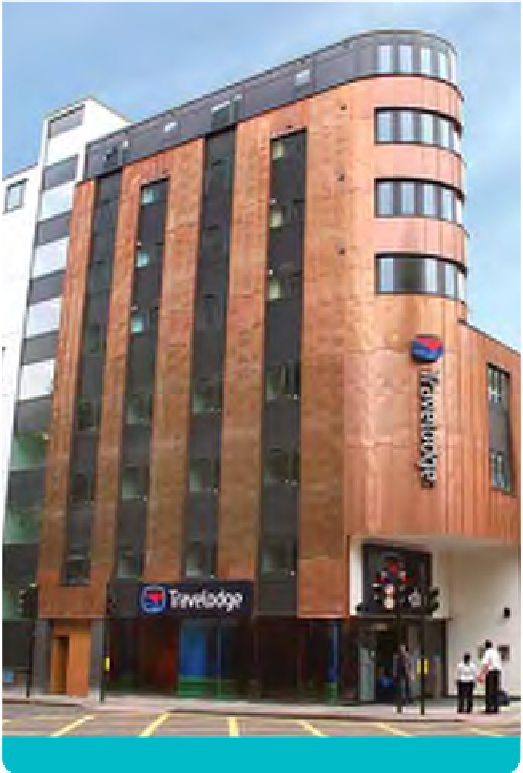Travel Reference
In-Depth Information
Types of accommodation
Hotels are either independently-run or part of a hotel
group or chain. Popular hotel groups with properties
in the UK and worldwide include Holiday Inn,
Intercontinental Hotels, Marriott Hotels and Resorts,
Crowne Plaza and Hilton. Hotel chains benefi t from
'economies of scale' in terms of purchasing, recruitment
and marketing. The core activities of hotels are to
provide accommodation, food and drink to guests.
Many also provide leisure facilities, conference and
banqueting services, and business facilities.
Visitors to Britain and UK residents can choose to
stay in many different types of accommodation. For
example, there are city-centre hotels, motels, farm
guesthouses, country house hotels and self-catering
cottages. For those looking for something a little
different, the Landmark Trust specialises in self-catering
accommodation in unusual settings, including a
lighthouse and a former railway station!
The fast growth of the budget hotel sector in recent
years has added a further 1,000 UK hotels offering a
'no frills' service for a fi xed, low price. Brands such as
Travelodge, Premier Inn, Formule 1 and Holiday Inn
Express, are key companies in this growing part of the
market.
Weblink
Check out this website for details of
Landmark Trust properties.
www.landmarktrust.org.uk
UK accommodation can be classifi ed in a number of
ways, for example independent or part of a chain (e.g.
Holiday Inn, Ramada Jarvis Hotels), commercial or non-
commercial, static or mobile, urban or rural. However, it
is most commonly classifi ed as either serviced or non-
serviced, depending on the level of service offered.
Serviced accommodation
As its name implies, the term 'serviced accommodation'
is used when a service is provided along with an
overnight stay, for example meals and housekeeping.
Hotels are the most common type of serviced
accommodation, but the category also includes motels,
guesthouses, bed and breakfast (B&B) establishments,
inns, youth hostels and farm guesthouses. The
British Hospitality Association estimates that there
are approximately 22,000 hotels and guesthouses
registered with the UK tourist boards with an
additional 16,000 bed and breakfast establishments.
If unregistered premises are included, the total rises
above 50,000 establishments. Turnover in the UK hotel
industry is around £27 billion per year, with average
room occupancy levels between 50 - 70 per cent.
Weblink
Check out this website for information
on the work of the British Hospitality
Association.
www.bha.org.uk
Travelodge is one of the UK's most popular hotel companies






















































































































































































































































